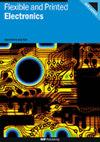透明导电电极和空穴传输层对 PET 基底上制造的 MAPbI3 太阳能电池性能的影响
IF 3.2
4区 工程技术
Q3 MATERIALS SCIENCE, MULTIDISCIPLINARY
引用次数: 0
摘要
本研究探讨了在聚对苯二甲酸乙二醇酯(PET)衬底上制造的过氧化物太阳能电池(PSCs)的性能如何取决于透明导电电极(TCEs)和空穴传输层(HTLs)。我们使用市售的 PET/TCE 制作了 PSC,并将其性能与在玻璃/氧化铟锡(ITO)基板上制作的 PSC 进行了比较。不同酸度的聚(3,4-亚乙二氧基噻吩):聚苯乙烯磺酸盐(PEDOT:PSS)和纳米氧化镍颗粒被用作 HTL。当使用高酸性 PEDOT:PSS 作为 HTL 时,在 PET/TCE 上制造的 PSC 的电流密度-电压特性明显降低。然而,在玻璃/ITO 上制成的 PSC 却没有观察到这种情况。为了研究 HTL 与 TCE 之间的相互作用,在将 TCE 浸入不同酸度的 PEDOT:PSS 溶液后进行了原子力显微镜观察。X 射线光电子能谱测量进一步揭示了 PET 上的 ITO 膜与玻璃上的 ITO 膜在化学成分上的差异。我们的研究结果表明,PSC 的性能取决于 TCE 基底和 HTL,这可以用它们之间的化学作用来解释。本文章由计算机程序翻译,如有差异,请以英文原文为准。
Effects of transparent conducting electrodes and hole transport layers on the performance of MAPbI3 solar cells fabricated on PET substrates
This study investigates how the performance of perovskite solar cells (PSCs) made on polyethylene terephthalate (PET) substrates depends on transparent conducting electrodes (TCEs) and hole transport layers (HTLs). We fabricated PSCs using commercially available PET/TCEs and compared their performance with PSCs manufactured on Glass/indium tin oxide (ITO) substrates. Poly(3,4-ethylenedioxythiophene):polystyrene sulfonate (PEDOT:PSS) with varying levels of acidity and NiO nanoparticles were used as HTLs. The current density-voltage characteristics of PSCs made on PET/TCEs were found to be significantly lower when highly acidic PEDOT:PSS was used as the HTL. However, this was not observed for PSCs made on Glass/ITO. To investigate the interaction between HTL and TCE, atomic force microscopy was carried out after dipping the TCEs in PEDOT:PSS solutions of different acidity. X-ray photoelectron spectroscopy measurements further revealed differences in the chemical composition between ITO film on PET vs. on glass. Our results indicate that the performance of PSCs depends both on the TCE substrates and HTLs, which can be explained by their chemical interaction.
求助全文
通过发布文献求助,成功后即可免费获取论文全文。
去求助
来源期刊

Flexible and Printed Electronics
MATERIALS SCIENCE, MULTIDISCIPLINARY-
CiteScore
4.80
自引率
9.70%
发文量
101
期刊介绍:
Flexible and Printed Electronics is a multidisciplinary journal publishing cutting edge research articles on electronics that can be either flexible, plastic, stretchable, conformable or printed. Research related to electronic materials, manufacturing techniques, components or systems which meets any one (or more) of the above criteria is suitable for publication in the journal. Subjects included in the journal range from flexible materials and printing techniques, design or modelling of electrical systems and components, advanced fabrication methods and bioelectronics, to the properties of devices and end user applications.
 求助内容:
求助内容: 应助结果提醒方式:
应助结果提醒方式:


